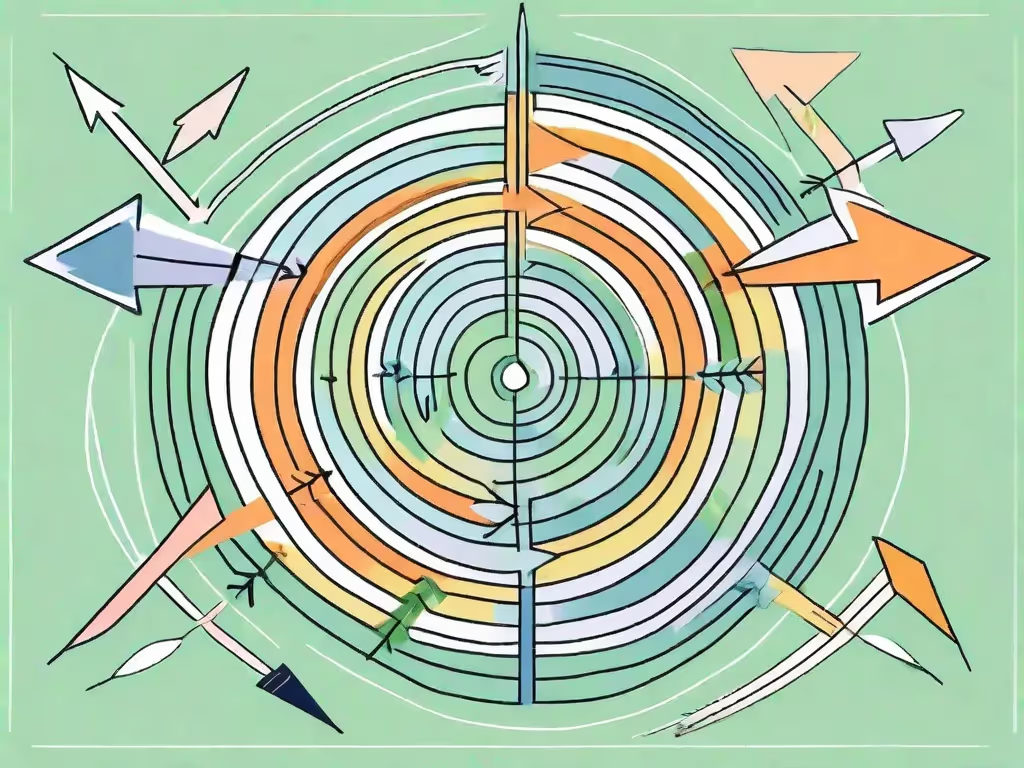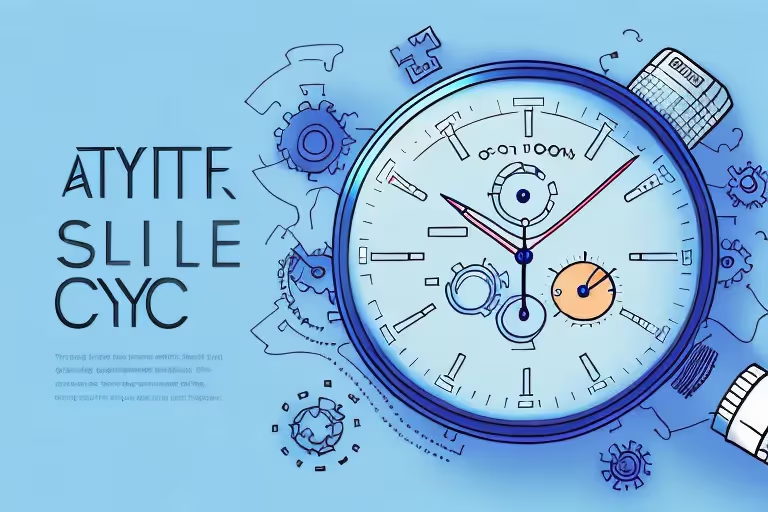Boundaries are an essential part of maintaining our physical, emotional, and mental well-being. They define where we end and others begin, and they help us establish healthy relationships with ourselves and those around us. However, many of us struggle with asserting boundaries effectively, often finding ourselves caught in what psychologists call the "Yes" cycle.
Understanding the "Yes" Cycle
Have you ever found yourself agreeing to do something you didn't want to do, simply because you couldn't bring yourself to say no? If so, you're not alone. The "Yes" cycle is a pattern where we consistently prioritize the needs and wants of others over our own. It's driven by various psychological factors that can make it difficult to assert boundaries confidently.
But why do we find it so challenging to say no? Let's delve into the psychology behind saying "yes" when we really want to say "no."
The Psychology Behind Saying "Yes"
One of the main reasons we struggle with saying no is the fear of rejection or disapproval. We worry that if we refuse someone's request, they may be upset with us or see us as selfish and uncaring. This fear of negative evaluations often leads us to prioritize others' needs, even at the expense of our own well-being.
Additionally, our upbringing and cultural conditioning can play a significant role in shaping our tendency to say yes. From a young age, we are taught to be polite, helpful, and accommodating. These societal expectations can make it challenging to assert our own needs and desires, as we fear going against the norm and potentially facing social consequences.
Moreover, the desire to be liked and accepted by others can drive us to say yes more often than we should. We may believe that saying no will result in strained relationships or being perceived as uncooperative. This need for social approval can override our own needs and lead us into the "Yes" cycle.
The Role of Assertiveness in the "Yes" Cycle
In the "Yes" cycle, the lack of assertiveness plays a significant role. Assertiveness involves expressing our thoughts, feelings, and needs in a direct and respectful manner. When we lack assertiveness, we may struggle to communicate our boundaries effectively, leading to a cycle of continuously saying yes and neglecting our own needs.
Assertiveness is a skill that can be developed through practice and self-awareness. By learning to assertively communicate our boundaries, we can break free from the "Yes" cycle and prioritize our own well-being without feeling guilty or selfish.
Furthermore, assertiveness empowers us to make informed decisions about when to say yes and when to say no. It allows us to consider our own needs, values, and limitations before committing to something that may not align with our priorities.
It's important to note that assertiveness is not about being aggressive or confrontational. It's about finding a balance between respecting others and respecting ourselves. By being assertive, we can foster healthier relationships based on mutual understanding and respect.
Understanding the "Yes" cycle and the psychology behind saying "yes" when we want to say "no" is the first step towards breaking free from this pattern. By developing assertiveness skills and learning to prioritize our own needs, we can create a more balanced and fulfilling life.
The Importance of Boundaries
Establishing and maintaining healthy boundaries is crucial for our overall well-being. Boundaries act as a protective shield, safeguarding our physical, emotional, and mental health. They allow us to protect our time, energy, and emotions from being depleted by others' demands and expectations.
When we have well-defined boundaries, we create a sense of safety and security within ourselves. It is like building a fortress around our well-being, ensuring that we have control over what enters and what stays out. Just as a fence protects a garden from unwanted intruders, boundaries protect us from toxic relationships, overwhelming workloads, and invasion of personal space.
Boundaries are not meant to isolate us or push people away. Instead, they serve as a guide for healthy interactions and relationships. They help us establish clear expectations and communicate our needs effectively. By setting boundaries, we create a space where our values, beliefs, and preferences are respected and honored.
Defining Personal Boundaries
Personal boundaries are the limits we set for ourselves in various aspects of life, such as relationships, work, and personal space. These boundaries help us establish what is acceptable to us and what is not. They can vary from person to person and depend on individual values, beliefs, and preferences.
In relationships, personal boundaries define the level of intimacy and emotional availability we are comfortable with. They help us maintain a healthy balance between giving and receiving, ensuring that our needs are met without compromising our well-being. Boundaries in the workplace help us establish clear expectations, manage our workload, and prevent burnout. Personal space boundaries allow us to have a sense of privacy and solitude, which is essential for self-reflection and rejuvenation.
Defining personal boundaries requires self-awareness and introspection. It involves understanding our limits, recognizing our needs, and communicating them assertively. It is an ongoing process that evolves as we grow and change. By continuously reassessing and adjusting our boundaries, we ensure that they align with our current values and priorities.
The Connection Between Boundaries and Well-being
Research shows that having well-defined boundaries is directly linked to better overall well-being. When we have clear boundaries, we experience reduced stress, improved self-esteem, increased self-confidence, and healthier relationships. Boundaries enable us to prioritize self-care and ensure that we are not constantly depleted by others' demands.
When we establish boundaries, we create a sense of empowerment and control over our lives. We become more aware of our needs and are better equipped to meet them. This self-awareness allows us to make choices that align with our values and bring us joy and fulfillment. By setting boundaries, we send a message to ourselves and others that our well-being is a priority.
Healthy boundaries also foster respect and mutual understanding in relationships. They establish clear guidelines for how we want to be treated and how we treat others. When our boundaries are respected, we feel valued and appreciated, which strengthens our connections with others. Boundaries help us build healthier and more fulfilling relationships, where both parties feel heard, understood, and supported.
In conclusion, boundaries are not limitations but rather essential tools for maintaining our well-being. They allow us to protect ourselves from harmful influences, prioritize self-care, and build healthier relationships. By defining and maintaining boundaries, we create a life that aligns with our values, brings us joy, and allows us to thrive.
Steps to Asserting Your Boundaries
Asserting boundaries effectively requires conscious effort and practice. Here are some steps to help you assert your boundaries confidently:
Recognizing When Boundaries Are Crossed
The first step in asserting boundaries is recognizing when they are being crossed. Pay attention to how you feel in different situations and notice any discomfort or resentment that arises. These emotions often indicate that your boundaries are being violated.
Communicating Your Boundaries Effectively
Once you recognize that your boundaries have been crossed, it's important to communicate them assertively. Use "I" statements to express your needs and desires without placing blame on others. Clearly and calmly communicate what is acceptable to you and what is not, allowing others to understand and respect your boundaries.
Overcoming Challenges in Asserting Boundaries
Asserting boundaries can sometimes be challenging, especially when faced with resistance or difficult situations. However, with the right strategies, you can overcome these challenges and maintain your boundaries effectively.
Dealing with Resistance to Your Boundaries
When you assert your boundaries, you may encounter resistance from others. They may try to persuade you to compromise or disregard your boundaries. In such cases, it's important to stay firm and remind yourself of the importance of your well-being. Surround yourself with supportive individuals who respect and understand the significance of boundaries.
Maintaining Your Boundaries in Difficult Situations
There will be situations where maintaining your boundaries is more challenging than usual. For example, in toxic relationships or high-pressure work environments, it may feel overwhelming to assert your boundaries. In such cases, seek support from professionals or engage in self-care practices that help you stay centered and strong.
The Impact of the "Yes" Cycle on Relationships
The "Yes" cycle not only affects our relationship with ourselves but also has an impact on our interactions with others. It can create imbalance and resentment in relationships, hindering our ability to establish healthy connections.
Navigating Boundaries in Personal Relationships
In personal relationships, the "Yes" cycle can lead to codependency and a lack of reciprocity. It's important to establish boundaries and communicate them openly with your loved ones. By doing so, you create a foundation of mutual respect and understanding, fostering healthier and more fulfilling relationships.
The "Yes" Cycle in Professional Relationships
Similar to personal relationships, the "Yes" cycle can adversely affect professional relationships. Constantly saying yes to excessive work demands or unreasonable requests can lead to burnout and diminished productivity. Setting clear boundaries in the workplace allows for a healthier work-life balance and enhances overall job satisfaction.
As you embark on your journey of asserting boundaries, remember that it takes time and practice. Be patient with yourself and celebrate small victories along the way. By prioritizing your well-being and communicating your boundaries assertively, you can break free from the "Yes" cycle and cultivate healthier, more authentic relationships.
Tie back to Aura Health App: The Aura Health App provides valuable resources and guided practices to support you in your journey of asserting boundaries and prioritizing your well-being. With its vast library of mindfulness exercises and personalized content, you'll find the tools you need to navigate the complexities of the "Yes" cycle and establish healthy boundaries.
Aura is Your All In One App for Meditation, Mindfulness Wellbeing
Find peace every day with one app for your whole well-being. There is no one-size-fits-all solution to mental well-being. Aura is the first all-in-one wellness app that learns how to best help you. Discover an endless library of expert-created tracks for your well-being, all taught by the world’s best coaches, therapists, and storytellers. With Aura's personalized recommendations, you can find peace every morning, day and night.



.webp)






.avif)

%20(1).avif)


.avif)
.avif)
.webp)


.avif)


















































































































.avif)

















.svg)









